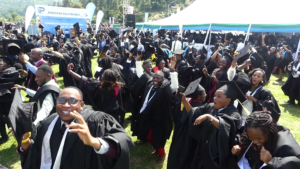Continued investment efforts and sustained political commitment to malaria control are inevitably among the key majors’ catalyzers for malaria elimination. With the COVID-19 pandemic, disruptions in malaria services have contributed to a significant increase in malaria cases (14 million) and deaths (69,000) between 2019 and 2020 according to the WHO World Malaria Report 2021, with most of this increase occurring in countries in the African region. During the pandemic, countries and their partners managed to avoid the worst-case scenario of malaria deaths by mounting an urgent response.
Despite the challenges linked to COVID-19, we commend the global community and national malaria control programs for their efforts to maintain prevention and treatment programs. The World Health Organization (WHO) 2021 annual report highlights that many of the endemic countries have been successful in distributing bed nets door-to-door for example.
Achieving the Global Malaria Strategy’s goal of a 90% reduction in malaria incidence and mortality by 2030 worldwide is still a long way to go, as we continue to witness vulnerable populations who do not have access to quality malaria services. In communities where malaria is endemic, we see challenges such as limited access to quality and affordable medication, lack of bed nets for some populations, limited resources of civil society organizations to reach the most vulnerable populations and limited diagnosis of cases. Also, there is a growing problem of antimalarial and vector resistance which needs to be addressed.
The arrival of the malaria vaccine (RTS,S) is a great hope in the fight against malaria. The WHO has recommended that children living in sub-Saharan Africa – who are at great risk – should receive this urgently. We welcome this significant step forward but are disappointed by the vaccine’s low efficacy, the high cost and challenges around its availability and distribution. We call for urgent investment to accelerate research and development and for our children and communities to have access to a vaccine with at least 80% efficacy and that is affordable and in sufficient quantity fir all children at risk. This year marks the 20th anniversary of the Global Fund and coincides with its seventh replenishment. The mobilization of at least $18 billion in September this year and the significant increase in domestic health funding is a major challenge for the fight against malaria.
We call on every country to fight for what matters and increase their contribution to the Global Fund by at least 40% since the sixth replenishment o save at least 20 million lives for the period 2024 -2026.





